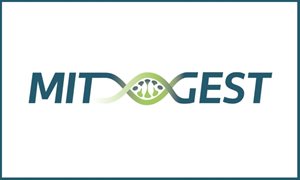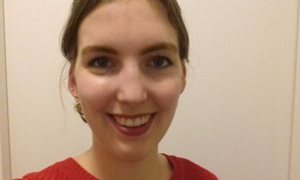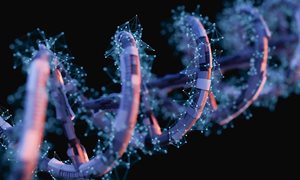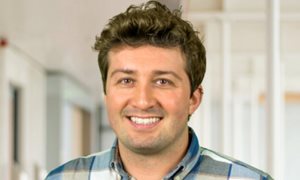
Hans Spelbrink (metabolic disorders and part of Radboud Center for Mitochondrial Medicine) is beneficiary of the MITGEST Doctoral Network that receives 2.6 million euros funding from the European Union. Amongst other things, this will allow him to appoint 2 PhD candidates.
Innovative technologies and integrated methodologies in the field of mitochondrial DNA (mtDNA) and its gene expression
EU has granted the new Doctoral Network “MITGEST” (Quality Control of the Mitochondrial Gene Expression System in Health and Disease) with 2.6 million euros of funding under the Marie Sklodowska-Curie Actions. The project coordinated by the University of Udine (Italy) will recruit 11 PhD candidates to produce advances and innovation in the field of mitochondrial dysfunction and its many disease manifestations through a multidisciplinary training programme. MITGEST network of seven research institutions and two companies (see below) enables close cooperation between industry and academia and provides doctoral candidates with a sustainable environment to grow their careers through innovative research. MITGEST aims to educate a young generation of scientists with the scientific and transferable skills needed to tackle the many challenges of the highly complex and integrated roles in cellular metabolism and disease in which mitochondria participate.
Mitochondrial dysfunction
Mitochondria are considered the powerhouses of the cell, generating the majority of the chemical energy needed to power the cell’s biochemical reactions. Dysfunction of the mitochondria is at the root of many human disorders that can present at any age with a wide range of overlapping clinical phenotypes. Mitochondrial dysfunction has also been implicated in common conditions such as cancer and ageing. Still, the understanding of the links between mitochondrial dysfunction and disease pathophysiology is limited. MITGEST’s findings will provide critical information for the development of effective treatments and disease biomarkers that represent an urgent unmet need in the biomedical area of mitochondrial dysfunction.
Partners and recruitment
MITGEST, set to kick-off in October 2022, unites world-class academic excellence in mtDNA maintenance and expression with private sector expertise in nucleic acid chemistry and the development of mitochondrial therapeutics:
- The University of Udine (UNIUD)
- Radboud university medical center (Radboudumc)
- The Institute of Biochemistry and Biophysics of the Polish Academy of Sciences (IBB)
- Karolinska Institute (KI)
- Biodonostia Health Research Institute (BRI)
- Univeristy College London (UCL) (to be funded by UKRI)
- Baseclick GmbH (BASECLICK)
- Minovia Therapeutics LTD (Minovia)
Recruitment for the 11 PhD positions will start in September 2022.
More information can be found on the project website: www.mitgest.eu
Related news items

Towards a better understanding of Leigh Syndrome pathology and intervention published in Brain
8 December 2021 Melissa van de Wal and colleagues recently published a comprehensive review in the journal Brain on how Ndufs4 knockout mouse models have been used to unravel the pathomechanism of Leigh Syndrome. go to page
New genetic defect links cell biology and protein glycosylation
10 November 2021 Peter Linders, Dirk Lefeber and Geert van den Bogaart together with international colleagues have recently reported on novel cell biological insights, by identifying a genetic disorder in syntaxin-5 which allowed to unravel a new mechanism regulating intracellular transportation. go to page
RIMLS awards call for nominations
19 October 2021 RIMLS awards several prizes to stimulate and honor our (young) researchers. Upcoming awards are Supervisor of the Year, Best Master Thesis, Best Publication, Best Image and more. Send your nominations now before 24 November 2021. go to page
Systematic analysis of short tandem repeats in 38,095 exomes provides an additional diagnostic yield
22 September 2021 Christian Gilissen and colleagues published in Genetics in Medicine about their work guiding the application of short tandem repeat analysis in clinical exome sequencing. go to page
Young Investigator Award for Alex Garanto
16 September 2021 Alex Garanto has been honored with the 2021 Mary Ann Liebert, Inc. publishers Young Investigator Award go to page